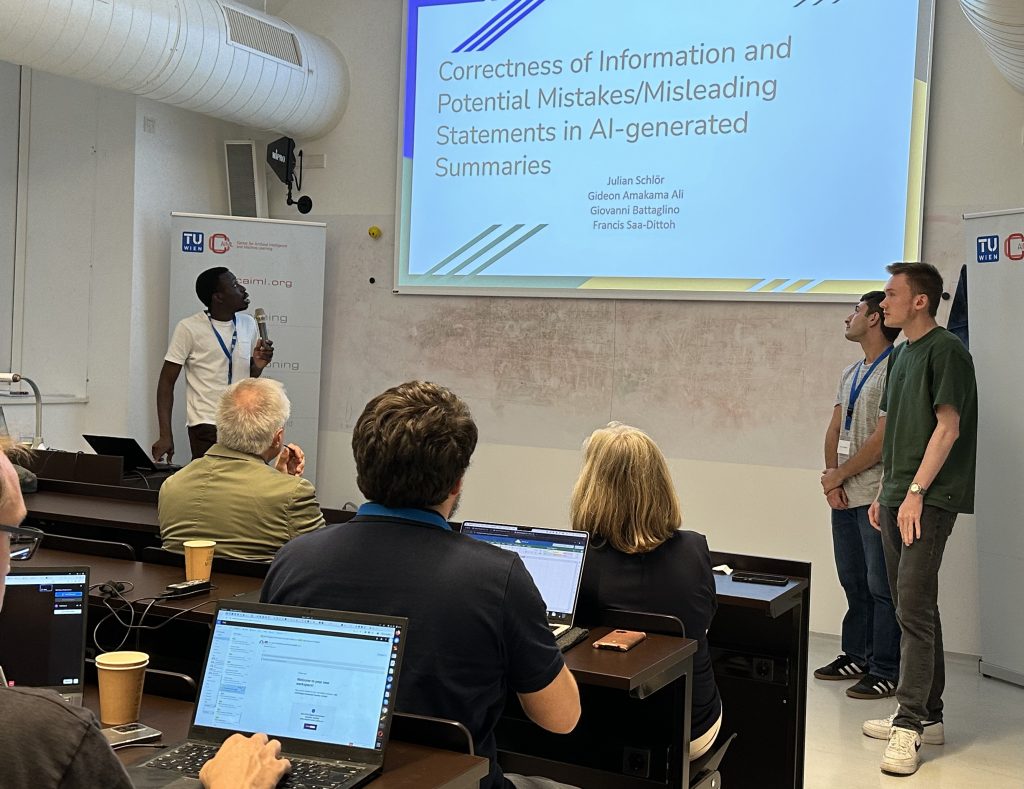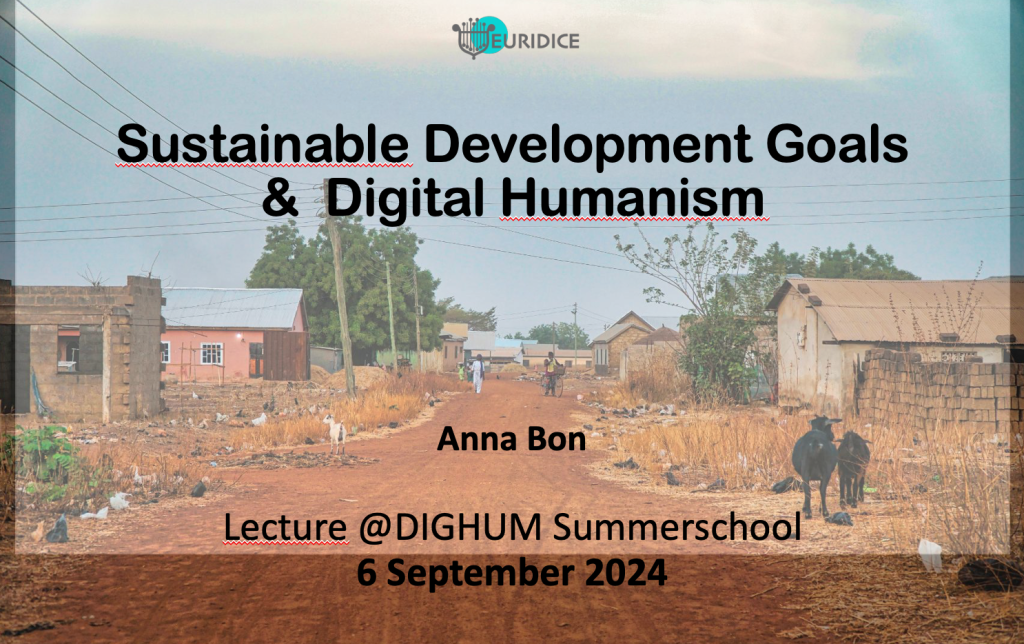The EURIDICE project is proud to present a short account on the 3rd ACM Digital Humanism Summer School 2024.
Digital Humanism is an interdisciplinary initiative that examines the complex interplay between technology and humankind, with the aim of creating a better society and placing humans at the centre of technological innovation. Digital Humanism breaks down disciplinary silos, by integrating humanities, social, technical, and engineering sciences.
The Digital Humanism Summer School, organized and hosted by the Centre for AI and Machine Learning of TU Wien, provides a platform for scholars and students to explore and discuss key issues related to various aspects and wicked problems of the Digital Society. Subjects are e.g. participation and democracy, digital politics and sovereignty, the role of platforms in the economy, privacy, artificial intelligence and ethics, and fair (digital eco-) systems.

This year’s Summer School took place at TU-Wien in Vienna, from 2-6 September 2024. It brought together globally recognized and leading academics from computer science, social sciences, and humanities to present and discuss with an audience of 31 PhD candidates and students from various disciplines, backgrounds and countries in the world.
The Summer School started on Monday 2 September, with a lecture by Hannes Werthner, emeritus professor Data Science from TU Wien, and founder of the Digital Humanism Initiative, followed by a lecture from George Metakides, visiting professor at the University of Southampton, adjunct Professor at the European University of Cyprus, and President of the Digital Enlightenment Forum. The recent Open Access textbook Introduction to Digital Humanism was presented as an important new educational resource in this field of study.
The next lecture was given by Jürgen Pfeffer, professor at the Technical University of Munich, discussing Degenerative Democracy.
The next day, digitalization and environmental aspects were discussed by Atakan Aral and Katrin Attermeyer.
Thomas Lohninger discussed Digital Public Infrastructure: Who Governs the Operation System of the Digitised Society.
Tuesday evening a special event at TU Wien was dedicated to the Digital Humanism Initiative, the First Five Years. See the full video of this event.
On Wednesday, 4 September Erich Prem gave a lecture and discussed AI Ethics. In the evening a film was shown: “Screening “Entangled Recurrents” followed by a Q&A with the film maker Felix Stalder”.
On Thursday 5th, Ute Schmid, professor and Head of the Cognitive Systems group of the University of Bamberg, gave a comprehensive lecture on Trustworthy Artificial Intelligence: Comprehensible, Knowledge-informed, and Revisable.
This was followed by a lecture by Robin Burke and Maria Soledad Pera titled Personalized Information Access: Ideology and Reality.
On Friday Stavros Makris lectured about Competition Law and Market Regulation in the Digital Era. See his slides. In the afternoon, together with my colleague from UDS, Mr. Francis Saa-Dittoh, I gave a lecture about Digital Humanism, Sustainable Development and Challenges of the Global South. See Francis Saa-Dittoh’s slides.
See also my slides:

The summer school was concluded by presentations of the assignments from the students groups. These had been assigned by Monika Lanzenberger and Franco Accordino from the City of Vienna.
The summer school was concluded with a closing ceremony in which 31 participants (19 women and 12 men) received a certificate, equivalent of 2.5 ECTS for having actively participated and achieved the learning goals at this advanced and innovative summer school.
EURIDICE in the Digital Europe Programme is one of the sponsors of the Digital Humanism Initiative.
